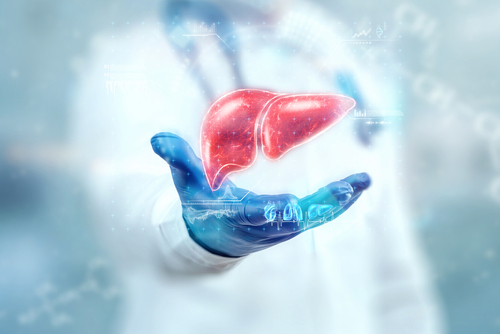Newsletter Signup - Under Article / In Page
"*" indicates required fields
A recent study at the University of Jyväskylä in Finland compared the gut microbiota and gut-derived metabolites between healthy controls and individuals with fatty liver.
The results revealed that certain microbial metabolites are associated with liver fat content.
The fact that the gut microbiota associates with many diseases has raised the hope that they could be used for diagnostic purposes. One of the progressing research fields is the analysis of gut-derived metabolites that are manufactured by the microbes from the food.
Fatty liver disease is the most common chronic liver disease world-wide, especially in individuals with obesity. It also predisposes to cardiovascular diseases.
The recent study was conducted in collaboration with the universities of Helsinki, Eastern Finland and Indiana, as well as the International Agency of Cancer Research (WHO).
Microbiota liver disease biomarkers
The researchers found that individuals with fatty liver had, for instance, more degradation products of the amino acid leucine and histidine, as well as less of testosterone in their feces.
“These could be useful gut microbiota-derived biomarkers for diagnosing fatty liver disease,” said senior lecturer Satu Pekkala from the University of Jyväskylä.
“We are currently analyzing new data to determine whether these biomarkers could also be used to identify fatty liver patients that can be treated with personalized diet.”
Caffeine differences
The most interesting finding in the blood samples was that the individuals with fatty liver had higher levels of caffeine and its metabolites, even though both groups consumed the same amount of coffee.
A failure in caffeine metabolism can reflect lower activity of cytochrome enzymes in the liver. These enzymes are important degraders of drugs and nutrients, and therefore their role should be studied more to understand the importance of these enzymes and fatty liver in overall health.
More microbiota liver disease research
By going through the existing literature Pekkala noticed that the studies on the fecal metabolites in fatty liver disease were rather scarce.
Pekkala also observed that, surprisingly, many research findings were contradictory, and only Pekkala’s recent study considered the diet in the analyses.
“Because the microbes digest the food that we eat, it cannot be known whether the metabolite differences between healthy controls and patients with fatty liver are solely due to dietary differences,” Pekkala said.
“So that the microbial biomarkers could be used for diagnostics, more research in larger populations is needed, and most importantly diet should be considered among other confounding factors.”
Pekkala’s research team is already conducting such studies and new research is being planned.
Partnering 2030: The Biotech Perspective 2023







